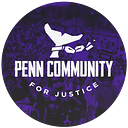Missing the Call to Action
The Controller’s report on the city’s response to civil unrest during summer of 2020 proves that negligence and poor decision making of city leadership put residents at risk for widespread police brutality. As a member of the Community Advisory Accountability Council for the Controller’s report who supports calls to hold our mayor and police commissioner accountable, I ask, what happens when we get these toxic leaders out of office?
While the investigating firms, Ballard Spahr and At Risk International, focused on failed leadership as the ultimate culprit for the city’s poor response, the Call to Action directly influenced by the Community Council, focuses on solutions that address the failure of policing itself.
In contrast to the investigating firms’ interpretation of facts, I believe the report demonstrates that the wrongs documented cannot be rectified by banal calls for implicit bias training, body cameras, and more police. While accountability is paramount, the issues we face as a city go much deeper than Outlaw and Kenny. That’s why members of the Community Council pushed hard to include recommendations like community control of police, reforms to Act111, and a radical reimagining of public safety.
It’s not enough to say it. How do we do it?
Although Act 111 reforms are largely in the hands of the state, greater community control of the police is a strong starting point. Immediate opportunities for control include the new Citizens Police Oversight Commission (CPOC), and the current labor negotiations between the City and the Fraternal Order of Police (FOP), an entity whose role is preserved by Act 111 and whose purpose is to protect police from accountability regardless of the cost to the community.
Community control commissions are historically disempowered. We must ensure that the new commission can truly fight for us. We must push the City Council to ensure the committee is selected by the community. It must be funded at the rate of at least 1% of the police budget and have full, real-time access to all PPD records and systems. In order for it to have teeth it must be authorized to perform front-line investigations, both of complaints against police and of its own accord.
As for the contract with the FOP, we must remind the City that instead of allowing the police to hoard money, power and impunity, they must advocate vigorously for the will of the people: we need real discipline for officers who harm our communities. We must demand an end to the practice of overturning officer discipline. We must also demand that people with connections to white supremacist groups are denied entrance to the PPD. Racists are incapable of implicit bias no matter how much training is enforced.
While the report foregrounds the national struggle to confront inherent racist violence in policing, it neglects to mention the economic and political conditions that many on the Community Council feel are important factors in widespread looting locally. When faced with dire quality of life issues and a swelling movement to defund police in order to fund communities, more police presence to “manage” unrest and the criminalization of protest will never be the right answer.
We should demand a radical reimagining of public safety based on police free alternatives rooted in care, not criminalization. The city should redistribute police responsibilities to civilian crisis intervention teams, unarmed first responders that can address emergencies relating to all non-violent and violent crimes not in progress. This could include homelessness, mental health crisis, social unrest, sexual violence, drug use, disciplinary issues in educational environments, and community disputes.
Since most police calls don’t involve violent crimes in progress (thus don’t require armed police), this approach would restore trust in the community by no longer criminalizing people in crisis and offer direct services to people in need.
The city must invest in a review of best practices to determine the most appropriate implementation of alternative public safety methods, and the public mustn’t let up until it’s done. Given the oversized budget of the PPD and their inability to adequately and safely serve the public, we need a community advised audit of the PPD budget and a diverting of funds.
Regardless of the lack of imagination and creativity in city leadership, Philly is desperate for a new direction. So many of us are tired of empty platitudes from politicians who can’t take responsibility. We don’t want false apologies from those with a record of abuse. These leaders don’t have the ability to manifest the vision for public safety we need. While we take the necessary steps to remove them from office, we must also continue the tedious work of rebuilding the rotted system we are tearing down.
Amelia Carter is a founding member of Penn Community for Justice, a group working to hold the University of Pennsylvania accountable for their impact on West Philadelphia. She is from Philadelphia and lives on 52nd St.
